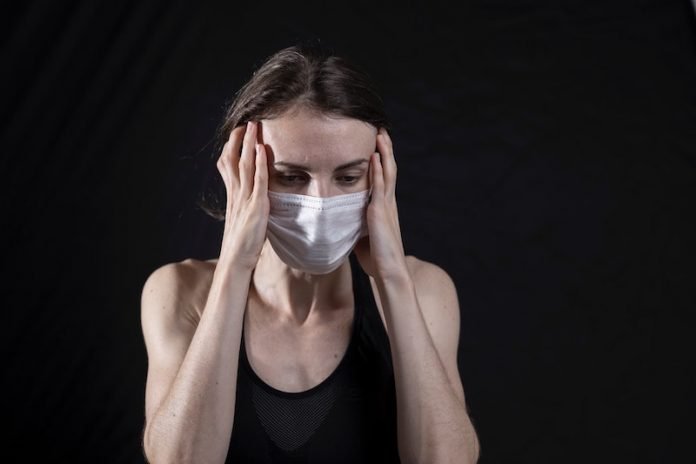
Scientists from the University of Leicester found that one year after having COVID-19, only around one in four patients feel fully well again.
They found that being female versus being male (32% less likely), having obesity (half as likely) and having had mechanical ventilation in a hospital (58% less likely) were all associated with a lower probability of feeling fully recovered at one year.
The most common ongoing long-COVID symptoms were fatigue, muscle pain, physically slowing down, poor sleep, and breathlessness.
The research is published in The Lancet Respiratory Medicine and was conducted by Professor Christopher Brightling et al.
In the study, the team examined more than 2,000 patients after hospitalization with COVID-19.
Patients from 39 UK National Health Service (NHS) hospitals were included, who agreed to five-month and 1-year follow-up assessments in addition to their clinical care.
A total of 2320 participants discharged from the hospital between March 7, 2020, and April 18, 2021, were assessed 5 months after discharge and 807 (33%) participants completed both the 5-month and 1-year visits at the time of analysis.
These 807 patients had a mean age of 59 years, 279 (36%) were women and 28% received invasive mechanical ventilation.
The proportion of patients reporting full recovery was similar between 5 months (501 [26%] of 1965) and 1 year (232 [29%] of 804).
The team says that the limited recovery from 5 months to 1 year after hospitalization in our study across symptoms, mental health, exercise capacity, organ impairment, and quality of life is striking.
They found female sex and obesity were major risk factors for not recovering at 1 year.
Female sex and obesity were also linked to more severe ongoing health impairments including reduced exercise performance and health-related quality of life at 1 year.
This potentially highlights a group that might need higher intensity interventions such as supervised rehabilitation.
The study highlights an urgent need for healthcare services to support this large and rapidly increasing patient population in whom a substantial burden of symptoms exists, including reduced exercise capacity and substantially decreased health-related quality of life 1 year after hospital discharge.
Without effective treatments, long COVID could become a highly prevalent new long-term condition.
The study also provides a rationale for investigating treatments for long COVID with a precision-medicine approach to target treatments to the individual patient’s profile to restore their health-related quality of life.
Sign up for our newsletter for more information about this topic.
If you care about COVID, please read studies about how to avoid long COVID and how to minimize lung damage in COVID patients.
For more information about COVID, please see recent studies about the cause of smell loss in COVID-19, and results showing this drug shows promise in treating long COVID-19 symptoms.
Copyright © 2022 Knowridge Science Report. All rights reserved.



